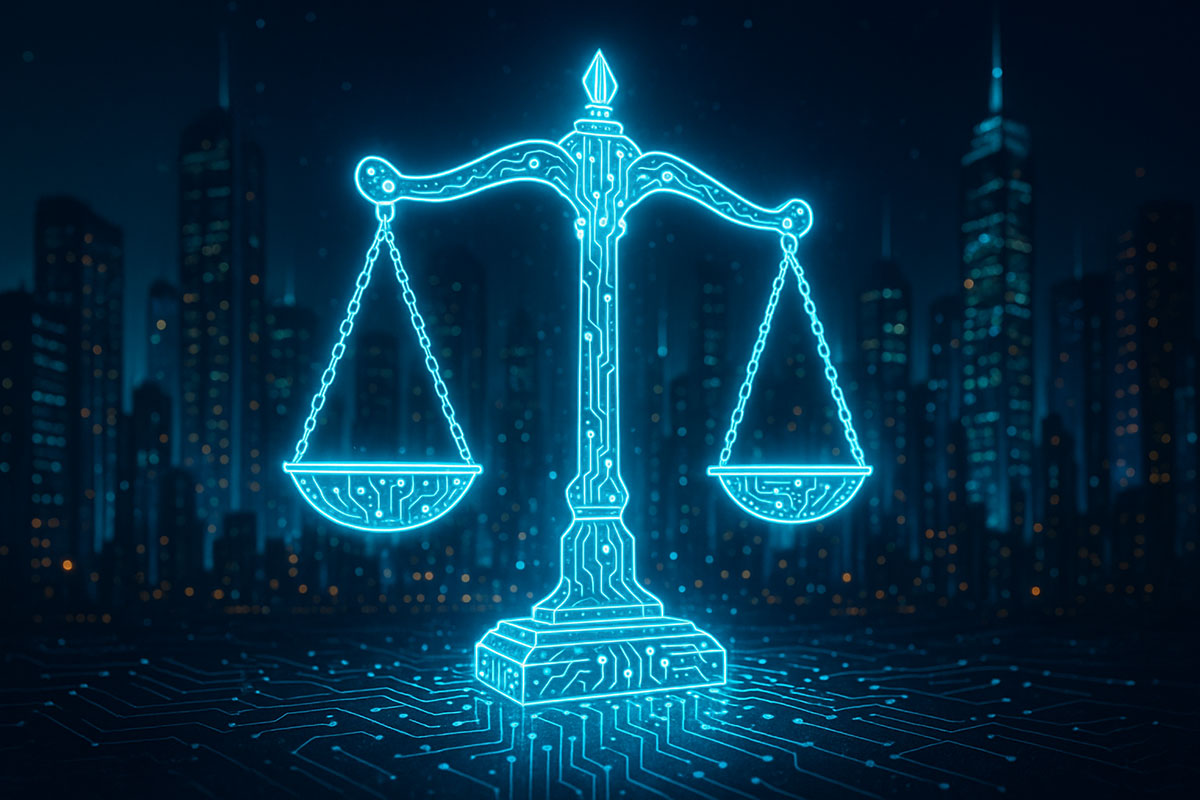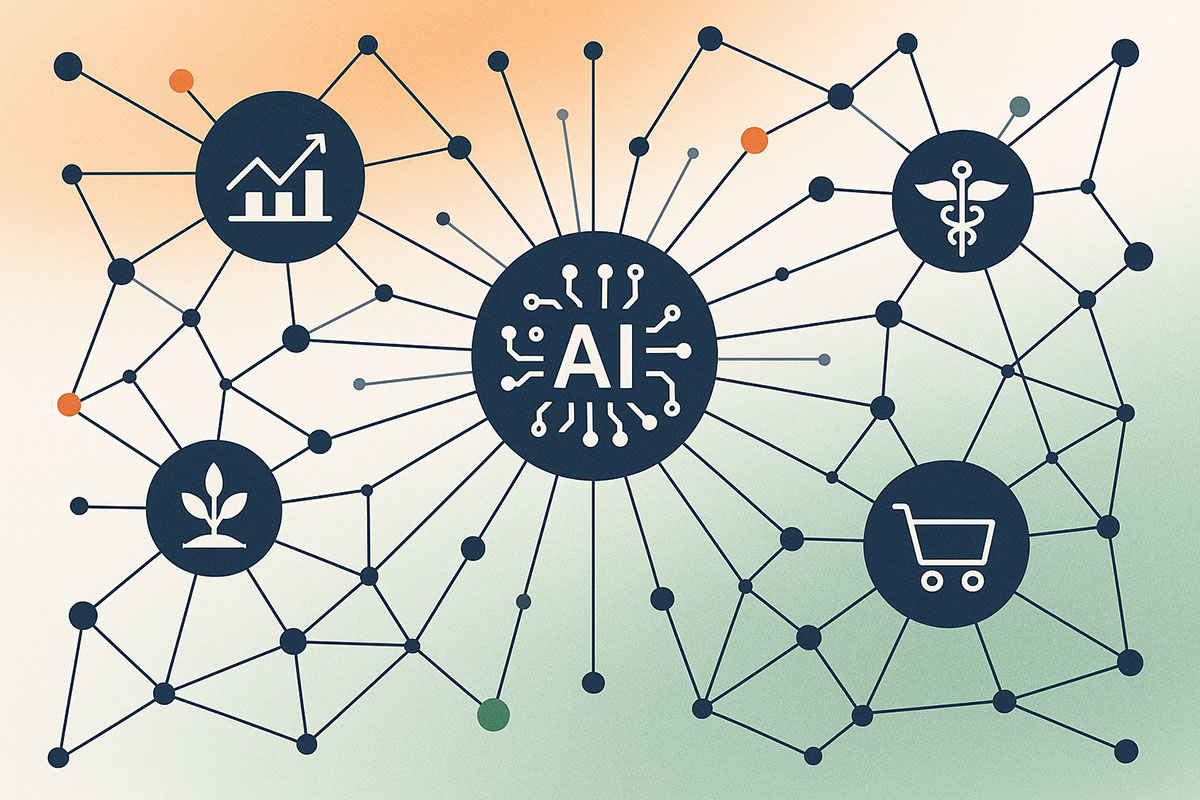Operationalizing Responsible AI in 2025: Policies, Tooling & Playbooks
As AI systems scale globally, responsible AI practices in 2025 are no longer optional—they are essential for trust, fairness, and compliance.
TrendFlash

Introduction: Creativity's New Partner
For centuries, humans assumed creativity was uniquely ours. Art, music, writing, design—these were the domains of human genius. In 2025, that assumption is being challenged. AI is becoming a creative partner, augmenting human creativity in ways that are expanding what's possible.
This guide explores how AI is transforming creativity, what's working, what concerns exist, and what the future holds for artists and creators.
How AI Is Changing Creativity
1. Generative Art & Design
The AI Revolution:
- Midjourney, DALL-E, Stable Diffusion generate images from text descriptions
- Runwayml creates and edits videos with AI
- AI designs book covers, posters, logos in minutes
The Impact:
- Designers go from hours per design to seconds
- Non-designers can now create professional visuals
- Iteration speed increases 100x (try 1,000 variations instantly)
- Cost of visual content drops dramatically
2. Music Composition & Production
The AI Tools:
- AI composers generate original music in any genre/style
- AI produces full tracks (not just lyrics)
- AI enhances human-composed music
- AI masters and mixes audio automatically
Real Examples:
- Spotify uses AI to generate personalized background music
- Film composers use AI to generate variations on their themes
- Independent artists use AI production to compete with studios
3. Writing & Content Creation
AI Helps With:
- Brainstorming ideas (overcome writer's block)
- Drafting first versions (structure and outline)
- Editing and refinement (grammar, tone, clarity)
- Generating variations (multiple angles on same story)
The Reality:
- AI writes ~70% decent first draft
- Human creativity needed for final 30%
- Human editors make it exceptional
- Net result: Faster, better writing with human oversight
4. Photography & Visual Effects
AI Capabilities:
- Enhance low-quality photos to professional quality
- Remove objects from photos realistically
- Change backgrounds, lighting, composition
- Create photorealistic images that never existed
5. Animation & 3D
AI Transforms 3D:**
- AI generates 3D models from text descriptions
- AI animates characters automatically
- AI creates realistic physics simulations
- Production time drops 50-80%
Real-World Examples: AI in Creative Practice
Example 1: Designer Using Midjourney
Old Process: Spend 2 hours designing one book cover
New Process: Generate 100 variations in 10 minutes, pick best 5, spend 30 minutes refining
Result: Better designs faster
Example 2: Musician Using AI Composition
Old Process: Spend days composing orchestral themes
New Process: Describe theme concept to AI, get 10 variations instantly, refine best one
Result: Faster iteration, more creative exploration
Example 3: Screenwriter Using AI Brainstorming
Old Process: Stare at blank page for hours
New Process: Ask AI to brainstorm 20 plot twists, pick favorites, refine with human creativity
Result: Overcome writer's block, generate better ideas
The Controversy: Is This Still "Real" Creativity?
The Skeptic's Argument
- AI learns from human work without permission or payment
- AI outputs are derivatives, not original
- This devalues human artists
- AI can't truly understand art
The Optimist's Argument
- AI is a tool like paintbrush or camera
- Human creative vision still directs AI output
- AI enables new forms of creativity
- Creates opportunity for more creators
The Realistic Take
Both are true:
- AI training raises legitimate copyright concerns (being litigated now)
- AI also democratizes creativity (enables non-professionals)
- Some jobs will be disrupted (stock photography, routine design)
- New opportunities will emerge (AI-assisted creation)
- Human creativity + AI amplification > either alone
The Jobs Question: What Happens to Artists?
Jobs Being Disrupted
- Stock photography (AI generates unlimited variations)
- Routine design work (logo templates, standard layouts)
- Data entry and annotation (AI automating)
- Concept art mills (agencies producing 1000s of variations)
Jobs Being Enhanced
- Creative direction (telling AI what to create)
- Fine art curation (selecting best AI outputs)
- Concept refinement (taking AI output and perfecting)
- Specialized design (work requiring human judgment)
New Jobs Being Created
- Prompt engineering for art (crafting perfect instructions)
- AI art curation (selecting, refining best outputs)
- Human-AI collaboration specialist
- AI training (creating better datasets for models)
The Quality Question: Can AI Match Human Creativity?
Where AI Excels
- Speed (1000x faster)
- Variation (infinite options instantly)
- Technical perfection (flawless execution)
- Combination (blending styles effortlessly)
Where Humans Excel
- Meaning (emotional depth, intent)
- Innovation (genuinely new ideas)
- Context (understanding cultural significance)
- Purpose (creating art that moves people)
The Future: Human + AI Fusion
The best creative work in 2030 won't be human-only or AI-only. It will be human vision + AI execution + human refinement = art that neither could create alone.
Ethical Questions
Copyright Issues
AI learned from millions of images without artist permission or compensation. Multiple lawsuits ongoing (2025). Likely outcomes:
- Some form of artist compensation
- Opt-out mechanisms for training
- New licensing frameworks
Attribution Questions
If you use AI to create art:
- Are you the creator?
- Is the AI company?
- Is the original artist (whose work trained it)?
- Legal frameworks still evolving
Authenticity Concerns
As AI gets better:
- Harder to know what's AI vs. human created
- Deepfakes and misinformation risk
- Artist provenance becomes valuable
- Verification tools developing
Practical Guide: Using AI for Your Creative Work
Best Practices
- Use AI for iteration, not final output
- Edit and refine AI outputs to your standards
- Combine multiple AI systems
- Add your unique human touches
- Credit AI usage (being transparent)
Workflow Example: Design Project
- Define creative direction (human)
- Generate 100 variations with AI (seconds)
- Select top 10 (human judgment)
- Refine and combine (human + AI)
- Final polish (human)
Result: Better design, faster timeline, more exploration
The Future of AI in Creativity
2025-2026: Experimentation Phase
- Artists learning to use AI effectively
- Legal frameworks solidifying
- Copyright issues being resolved
- New workflows emerging
2027-2030: Integration Phase
- AI tools become standard in creative workflows
- Human + AI collaboration normalized
- New art forms emerging
- Humans focusing on higher-level creativity
2030+: Creative Renaissance
- AI as creative partner fully realized
- Humans doing more creative work (not less)
- New opportunities for creators
- Art forms we can't yet imagine
Conclusion: Creativity Evolved, Not Ended
AI isn't ending human creativity. It's evolving it. The artists who thrive will be those who see AI as a tool, not a threat. Learn to use it. Master it. Combine it with your human vision.
The future of creativity is human + AI, not human vs. AI. Explore more on AI tools and AI trends at TrendFlash.
Share this post
Categories
Recent Posts
Opening the Black Box: AI's New Mandate in Science
AI as Lead Scientist: The Hunt for Breakthroughs in 2026
Measuring the AI Economy: Dashboards Replace Guesswork in 2026
Your New Teammate: How Agentic AI is Redefining Every Job in 2026
Related Posts
Continue reading more about AI and machine learning

AI Regulation in Chaos: Trump’s Executive Order vs. State Laws – The 2026 Legal War
A political war is exploding over who gets to control AI. With a new executive order aiming to block states like California from enforcing strict safety mandates, we break down the coming legal battles and what it means for the future of American innovation and AI safety.

The "DeAI" Manifesto: How Decentralized AI is Breaking the Silicon Valley Monolith in 2026
With 90% of the internet now filled with synthetic bot content, the "Dead Internet" theory has become a reality. Decentralized AI (DeAI) is emerging as the 2026 solution for verifiable, private, and censorship-resistant intelligence.

India's New AI Regulation Framework: What Every Tech Company & User Needs to Know (November 2025)
On November 5, 2025, India's Ministry of Electronics and Information Technology (MeitY) released the India AI Governance Guidelines—a landmark framework that reshapes how artificial intelligence is regulated in the country. Unlike Europe's restrictive approach, India's framework prioritizes innovation while embedding accountability. Here's what every founder, developer, and business leader needs to know about staying compliant in India's rapidly evolving AI landscape.